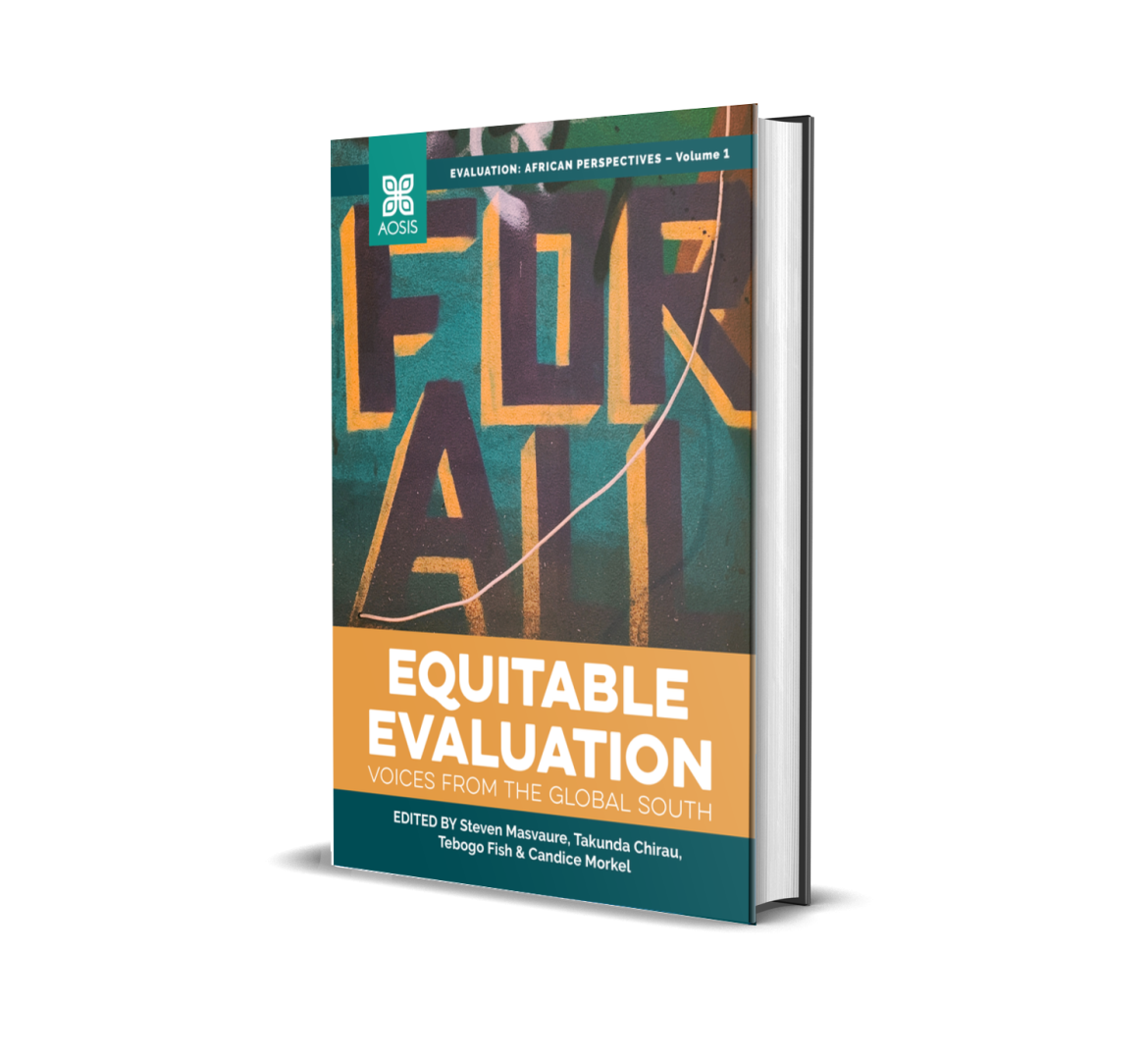Equitable Evaluation: Voices from the Global South is an open access book published by AOSIS Scholarly Books.
The World Health Organization (WHO) defines equity as the absence of preventable or remediable disparities among various groups of individuals, regardless of how these groups are delineated, whether by social, economic, demographic or geographic factors. The goal of equity is to eliminate the unfair and avoidable circumstances that deprive people of their rights. Therefore, inequities generally arise when certain population groups are unfairly deprived of basic resources that are made available to other groups. A disparity is ‘unfair’ or ‘unjust’ when its cause is due to the social context rather than biological factors. Equitable evaluation contends that conducting evaluation practices with an equity approach is more powerful, as evaluation is used as a tool for advancing equity. It emphasises that context, culture, history, and beliefs shape the nature of evaluations, specifically in the diverse and often complex African reality. Equitable evaluation can render power to the powerless, offer a voice to the silenced and give presence to those treated as invisible. Evidence from various sources shows that inequality is prevalent on the African continent, hence the need to focus on evaluative solutions that address the structural issues that contribute to the different forms of inequality, such as economic, political and social inequality. Despite a plethora of development interventions on the African continent, a large proportion of the population on the continent is still lacking access to basic goods and services for survival. The effectiveness of developmental programmes in sub-Saharan Africa has been elusive, to the extent that minimal inroads have been made in addressing key challenges such as poverty, inequality and the effects of climate change. This scholarly book aims to invigorate academic discussions surrounding developmental programmes, with the goal of generating insights that can be utilised by evaluation commissioners and decision-makers to help address inequality and promote a more equitable society in Africa through improved evaluation processes.
Copyright (c) 2023 Steven Masvaure, Takunda John Chirau, Tebogo Fish, Candice Morkel (Volume editor)
The publication of this book comes at a good time, given the endemic power imbalance between countries in the Global South and the Global North. The post-COVID-19 world demonstrates the perpetual unequal distribution of power and resources between developed and developing countries in the Global North and Global South. Millions of people suffer from this asymmetry, which contributes to growing inequality. Due to its inherent value judgement in the evaluation process and its potential influence on policy decisions, evaluation should speak truth to power rather than remain complicit. This book on equity in evaluation is a step towards distilling and synthesising the current status and direction of evaluation in African contexts in the 21st century. This book will most certainly be a strong addition to the theoretical evaluation scholarship toolbox as it will further illuminate the current status of evaluation in African contexts. Global South evaluation voices in this publication contribute to a larger body of knowledge by invoking African epistemology, ontology, and axiology, which could engender transformative evaluation practices.
Dr Nombeko P Mbava, School of Public Leadership, Faculty of Economic and Management
Sciences, Stellenbosch University, Stellenbosch, South Africa

